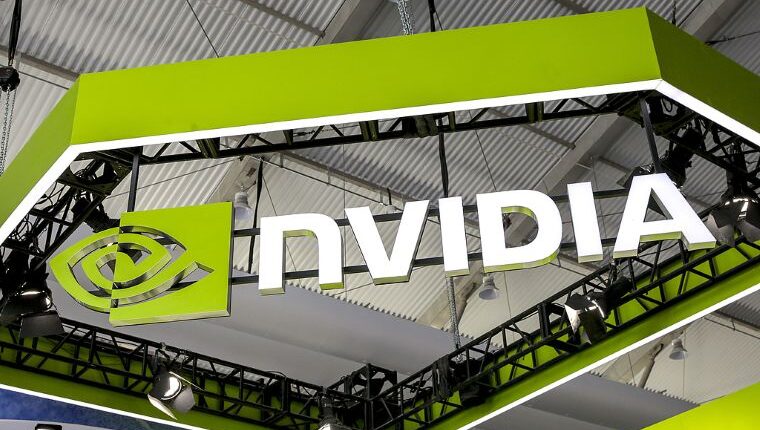The global technology industry is paying close attention as Nvidia, the world’s leading AI and GPU chipmaker, faces antitrust scrutiny from Chinese regulators. In 2025, as Nvidia continues to dominate the semiconductor and artificial intelligence markets, China has raised concerns over competition, pricing, and potential market monopolization.
In response, Nvidia has stated that it will cooperate fully with Chinese authorities, emphasizing its commitment to compliance and transparency. This move highlights not only the company’s willingness to address regulatory issues but also the delicate balance it must maintain in one of the world’s largest technology markets.
Nvidia’s Market Dominance and Rising Global Influence
Nvidia has grown from being a GPU manufacturer for gamers to becoming the cornerstone of artificial intelligence computing. Its graphics processing units (GPUs) are the backbone of AI training, data centers, and machine learning infrastructure.
-
AI Revolution: With the surge in generative AI applications, Nvidia’s chips power everything from ChatGPT-like models to advanced robotics.
-
Data Center Growth: Nvidia’s data center revenue surpassed gaming as its largest segment, showing the shift toward enterprise adoption.
-
Global Reach: Nvidia supplies chips to major cloud providers, research institutions, and AI startups worldwide.
This dominance, however, has sparked regulatory attention across multiple regions, including the United States, European Union, and now China.
Why Chinese Regulators Raised Antitrust Concerns
China, a key global player in technology, has increased regulatory oversight on companies with dominant market positions. Regulators are particularly cautious about foreign firms controlling strategic industries like semiconductors and AI infrastructure.
Key Concerns Raised:
-
Market Competition – Nvidia controls an overwhelming share of the high-performance AI chip market, making it difficult for local competitors to compete.
-
Pricing Power – With limited alternatives, regulators fear Nvidia could influence pricing unfairly.
-
Supply Chain Risks – Heavy reliance on Nvidia chips exposes China’s tech ecosystem to potential disruptions, especially amid ongoing U.S.–China trade tensions.
-
Innovation Monopoly – Concerns exist that Nvidia’s dominance could stifle the growth of Chinese semiconductor startups.
By addressing these concerns, China aims to protect its domestic tech industry while ensuring fair access to critical computing power.
Nvidia’s Official Response to Chinese Regulators
In a recent statement, Nvidia confirmed it would work closely with Chinese regulators and address all questions related to antitrust issues. The company emphasized three main points:
1. Commitment to Transparency
Nvidia stated it would provide full disclosure of its business operations, partnerships, and pricing structures to regulators.
2. Collaboration With Local Partners
The company highlighted its ongoing partnerships with Chinese tech firms and reassured regulators that it would continue to support domestic AI development.
3. Compliance With Global Standards
Nvidia reaffirmed its compliance with not only Chinese regulations but also international antitrust frameworks, showing it aims to maintain credibility worldwide.
This cooperative stance mirrors Nvidia’s earlier responses to EU and U.S. regulators, where the company has navigated similar antitrust reviews without major penalties.
Potential Impacts on Nvidia’s Business in China
China is one of the largest markets for AI chips, and Nvidia’s revenue from the region is significant. The company’s cooperative response suggests it does not want to risk losing access to this massive market.
Short-Term Impacts
-
Increased Compliance Costs: Nvidia may face higher costs in meeting regulatory requirements.
-
Market Volatility: News of antitrust scrutiny could affect Nvidia’s stock performance in the short run.
Long-Term Impacts
-
Continued Market Access: By cooperating, Nvidia is positioning itself to maintain a strong presence in China.
-
Stronger Partnerships: Demonstrating goodwill may lead to deeper collaborations with Chinese tech companies.
-
Industry Balance: Nvidia may need to share more opportunities with local firms, balancing global leadership with domestic competition.
How This Affects the Global Semiconductor Market
The semiconductor industry is already under intense pressure due to geopolitical tensions, supply chain disruptions, and surging AI demand. Nvidia’s antitrust review in China could have ripple effects worldwide.
Possible Outcomes
-
Encouragement for Local Players – Chinese firms like Huawei and SMIC may benefit if regulators encourage local competition.
-
Diversification of Supply Chains – Global firms might spread production across more regions to avoid overdependence on Nvidia.
-
Stronger Oversight Worldwide – Other regulators may follow China’s lead, increasing global scrutiny of Nvidia’s market power.
In essence, while Nvidia remains dominant, the balance of global semiconductor power could shift as nations push for technological independence.
Industry Reactions and Expert Opinions
The tech community has reacted strongly to the news:
-
Investors see Nvidia’s cooperation as a smart strategy to safeguard long-term growth.
-
Chinese Tech Firms welcome the review, hoping it will create more opportunities for domestic players.
-
Analysts suggest that while Nvidia may face short-term hurdles, its long-term position as an AI leader remains strong.
Experts also note that China’s antitrust concerns may not be solely about Nvidia but rather part of a broader effort to strengthen local AI and chip industries.
What Traders and Investors Should Watch
For investors following Nvidia, here are key points to monitor in the coming months:
Regulatory Updates
Stay alert for official announcements from Chinese regulators about the scope and outcomes of the review.
Nvidia’s Partnerships
Watch how Nvidia strengthens or restructures its collaborations with Chinese companies to align with regulatory expectations.
Competitor Growth
Track local Chinese chipmakers that may benefit from regulatory support as potential rising stars in the AI sector.
Stock Market Reactions
Nvidia’s stock may experience volatility depending on how smoothly the cooperation process unfolds.
Conclusion: Nvidia’s Path Forward Amid Chinese Antitrust Concerns
Nvidia’s response to Chinese regulators highlights its pragmatic approach in addressing antitrust concerns. By committing to cooperation, compliance, and transparency, the company is taking proactive steps to secure its place in China’s growing technology ecosystem.
While challenges remain, including regulatory scrutiny and geopolitical risks, Nvidia’s leadership in AI and GPU technology positions it strongly for the future. At the same time, China’s move underscores the importance of fair competition and domestic innovation in shaping the global semiconductor market.
For now, Nvidia’s willingness to address concerns head-on could help the company maintain its dominance while balancing global expectations and local requirements.









